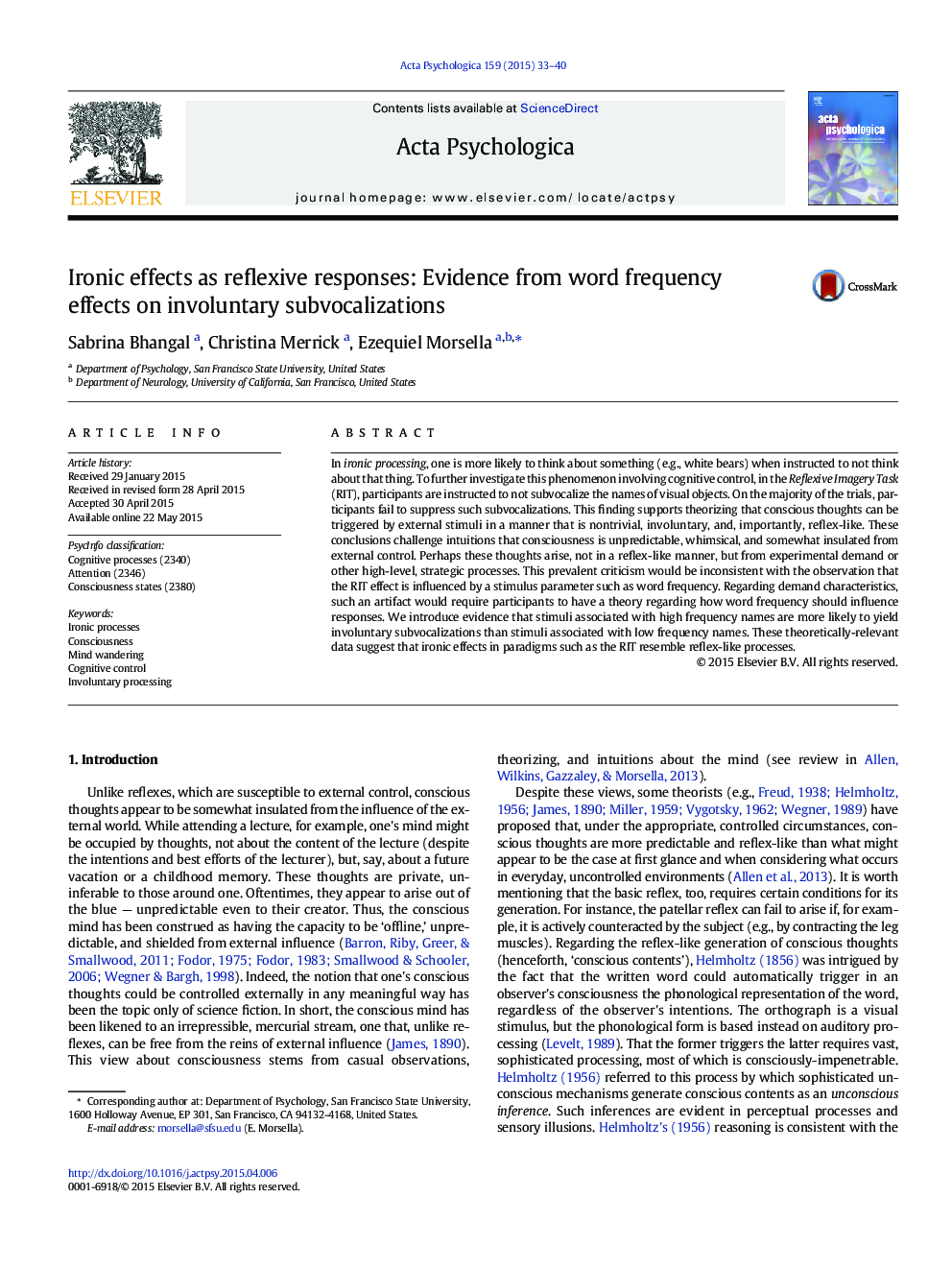| Article ID | Journal | Published Year | Pages | File Type |
|---|---|---|---|---|
| 919712 | Acta Psychologica | 2015 | 8 Pages |
•It has been proposed that ironic effects arise from automatic, reflex-like processes.•However, these effects may arise instead from high-level, strategic processes.•In our study, involuntary subvocalizations were perceived to occur “immediately.”•Moreover, word frequency influenced systematically the rate of subvocalizations.•Together, these findings corroborate that ironic effects are reflex-like.
In ironic processing, one is more likely to think about something (e.g., white bears) when instructed to not think about that thing. To further investigate this phenomenon involving cognitive control, in the Reflexive Imagery Task (RIT), participants are instructed to not subvocalize the names of visual objects. On the majority of the trials, participants fail to suppress such subvocalizations. This finding supports theorizing that conscious thoughts can be triggered by external stimuli in a manner that is nontrivial, involuntary, and, importantly, reflex-like. These conclusions challenge intuitions that consciousness is unpredictable, whimsical, and somewhat insulated from external control. Perhaps these thoughts arise, not in a reflex-like manner, but from experimental demand or other high-level, strategic processes. This prevalent criticism would be inconsistent with the observation that the RIT effect is influenced by a stimulus parameter such as word frequency. Regarding demand characteristics, such an artifact would require participants to have a theory regarding how word frequency should influence responses. We introduce evidence that stimuli associated with high frequency names are more likely to yield involuntary subvocalizations than stimuli associated with low frequency names. These theoretically-relevant data suggest that ironic effects in paradigms such as the RIT resemble reflex-like processes.
